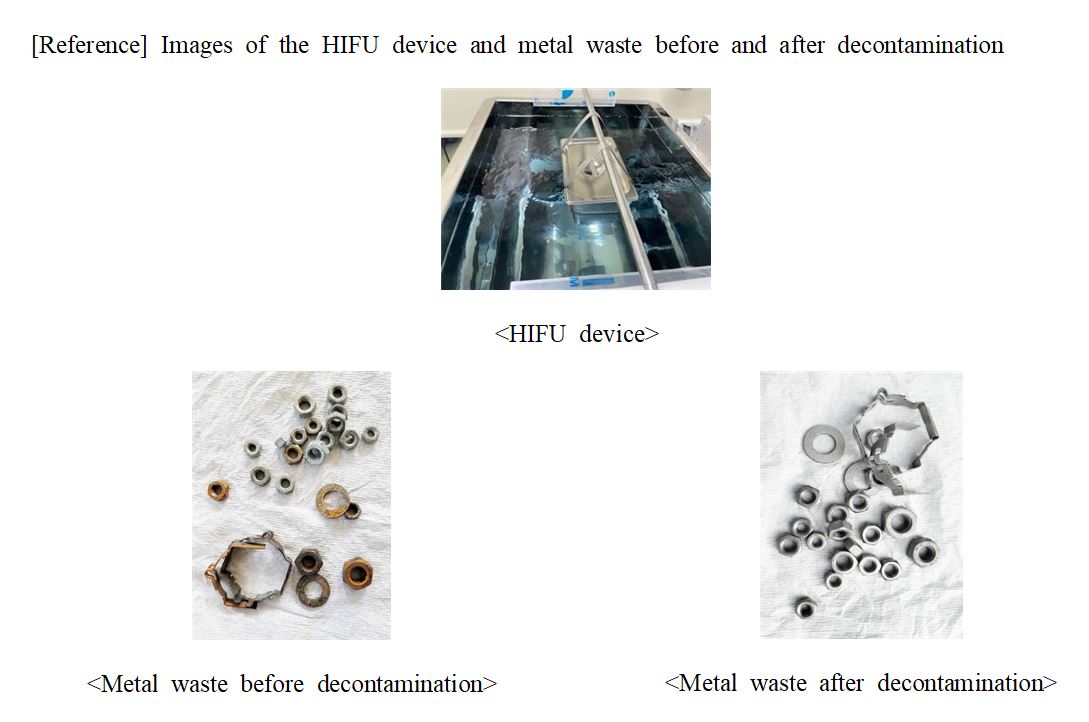▣ KEPCO Nuclear Fuel (President: Choi Ik-soo) announced on December 28 the development of a decontamination technology in collaboration with enesG based on high intensity focused ultrasound (HIFU) that can remove uranium particles from radioactive metal wastes.
▣ The HIFU decontamination technique concentrates the ultrasonic beams in a certain range, generating more than hundreds of times the energy of ordinary ultrasound, resulting in effective decontamination of complicated metals or highly contaminated radioactive wastes.
▣ Traditionally, radioactive waste in metals is decontaminated by melting the metals to remove the separated uranium or by manually washing contaminants off the metals. Such methods, however, have their limitations, as non-ferrous metals or metals coated with flammable substances cannot be melt decontaminated.
▣ It is estimated that KRW 24 billion will be saved in waste management costs when the new technique is applied to non-ferrous waste held by KEPCO NF that cannot be decontaminated by melting.
▣ Nuclear Safety Department Head Park Jungsuk said, “We expect that this technique will reduce risks associated with the high temperatures of melt decontamination, as well as greatly expand the range of waste metals to which decontamination can be applied, and will replace chemical decontamination that generates massive amounts of secondary wastes.” He also added, “Should this technique be successfully patented internationally, we look forward to applying the technique not only to decommissioning nuclear power plants but also in the general industrial cleaning process.”
▣ KEPCO NF collaborated with enesG for two years to develop Korea’s first HIFU device and method for decontaminating radioactive waste, which was granted a domestic patent last October.

|